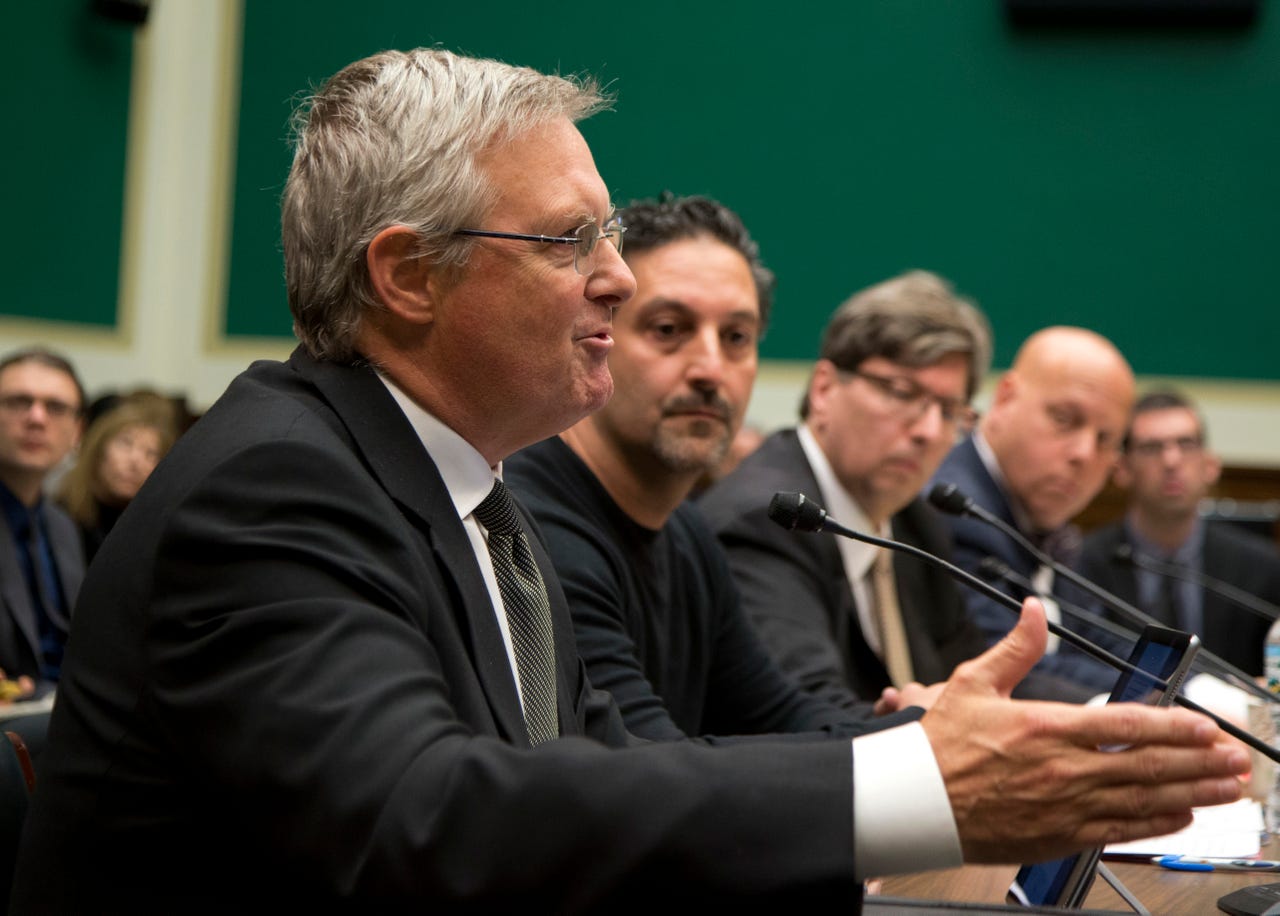Apple refused China access to source code, says chief lawyer


Apple general counsel Bruce Sewell testified before a House Oversight and Investigations subcommittee hearing on deciphering the debate over encryption. (Image: AP Photo/Manuel Balce Ceneta)
Apple has refused demands by China to hand over source code, the company's attorney said.
Bruce Sewell, the company's general counsel, rebuffed claims at a congressional hearing on Tuesday that the company had cooperated with Beijing.
Capt. Charles Cohen, a commander in the Indiana State Police, repeated the claim but later attributed the statement to "news stories" when pushed by Rep. Anna Eshoo (D-CA, 18th).
Sewell added that the company "did not have a key we threw away," according to a live stream of the hearing.
Reuters was first to report the story.
The company's attorney returned for the second time in as many months to respond to critics and lawmakers who have accused the company of helping other countries gain access to its data, and not at home in the US. Much of the frustration surrounds Apple's refusal to help law enforcement gain access to the iPhone used by one of the San Bernardino shooters, because the company built newer smartphones to be inaccessible to everyone except the owner.
It's not the first time Apple has fought against allegations it helped China, where Western and domestic companies often have to comply with overreaching surveillance demands.
Last month, Sewell said on a media call that the Justice Dept.'s claims that it helped China gain access to iCloud data on its citizens, which by law has to be stored inside the country, were "ridiculous."
Apple also branded some of the specific allegations as "ridiculous," referring to where the Justice Dept. said in its filing that Apple "made special accommodations in China."
He added that though the company had "absolutely not" been asked or compelled to build a backdoor in any country, except the US.
The US government has also pushed other tech companies to turn over their source code by using top-secret demands to prevent the public from finding out.